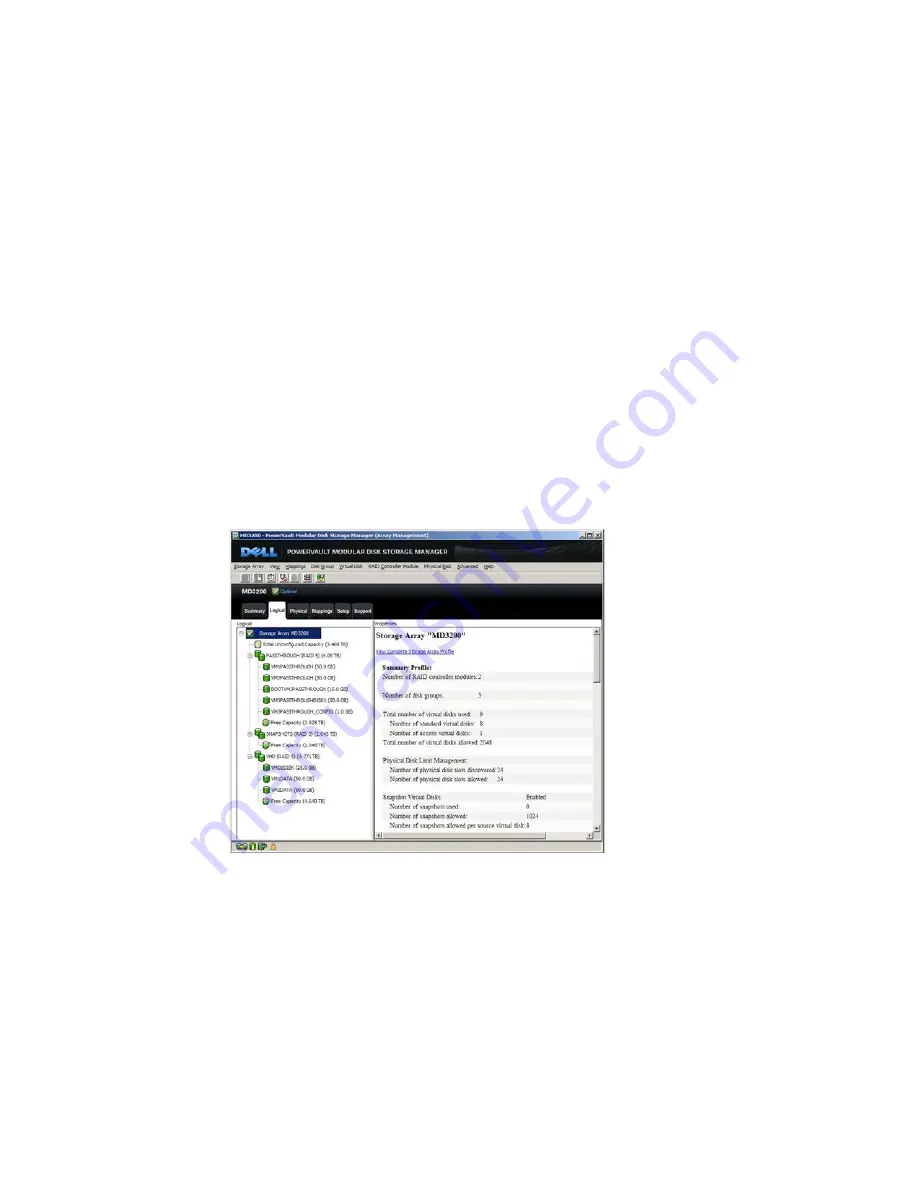
PowerVault™ MD32X0, MD32X0i, and MD36X0i Series of Storage Arrays: Implementing Hyper-V
Page 17
4.
Attach the virtual disk to the VM as a SCSI device. Go into the VM settings, and add a
SCSI controller by clicking
Add Hardware in the left pane of the Settings window for
your VM.
5.
Select the SCSI controller in the left pane, and click
Add Hard Drive.
6.
Select the
Hard Drive option, and associate it with a LUN. In the example,
LUN 3
was
associated with
Windows2003
VM.
7.
Click
OK. The pass-through device is ready to use.
Creating a New VM Using Pass-through Disks Only
This section shows you how to create a VM using pass-through disks only. You can boot from a pass-
through device, but you need a regular virtual disk on which to store the configuration data for the VM.
In the example, three virtual disks were created on the MD32X0, MD32X0i, or MD36X0i storage array.
Figure 9 shows a boot disk for the operating system of the VM, a data disk, and a 1-GB disk for the VM’s
configuration.
Figure 9.
Logical View of Example VM
1.
Map the
BOOTVM3PASSTHROUGH
,
VMPASSTHROUGHDISK1
, and the
VMPASSTHROUGH_CONFIG
to the host.
2.
Create a partition on the
1GB VM3PASSTHROUGH_CONFIG
, and format it with a file
system.
The other two disks remain offline.
3.
Using the
New Virtual Machine Wizard, go to the Hyper-V configuration, and create a
new VM.















































